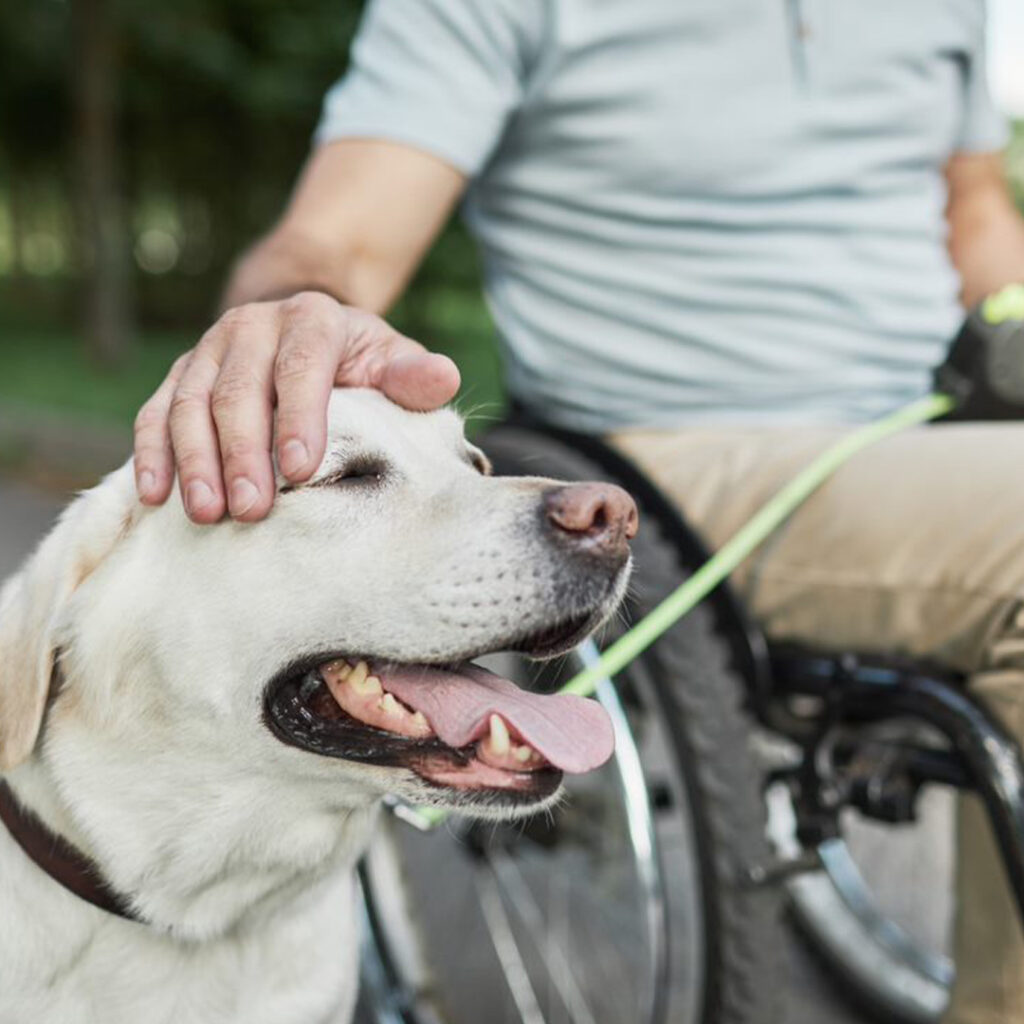Make the right choices to help you or your loved one make the most of their later life
Click to view the interactive care map
Check out more care related articles
Man’s best friends
“Pets just make us feel happier” – the simple reason why many elderly people benefit from the companionship of an animal
We are a nation of pet lovers and for many this doesn’t change just because you have to enter a care home – man’s best friend can become even more important at this time of life.
Ill health, loneliness, depression and anxiety-related issues can all make later life harder but pets can help ease the elderly through and studies have shown that interacting with a dog, cat, rabbit, ducklings and even fish can kindle memories about past experiences and provide an opportunity to talk.
One charity which knows a thing or two about the benefits our furry and feathered friends can bring is Oxfordshire-based Pets As Therapy who say a PAT pet can improve a person’s mental health and overall wellbeing, adding that there’s often an increased connection with carers and family too, and those living with dementia can feel energised and elated, “It comes down to a very simple truth: pets just make us feel happier”.
The charity was founded in 1983 by dog owner and volunteer Lesley Scott-Ordish and as it enters its 40th year, its vision remains unchanged to ensure everyone has access to the companionship of a pet regardless of their circumstances. In addition to its work in care homes, Pets As Therapy also extends the services to schools, hospitals and prisons.
More than 4,000 volunteers go out and about with their animal friends extending the paw or claw of friendship to day care centres, residential homes and hospices as well as the other facilities. Pets As Therapy volunteers are pet owners who give up their time to help, if you would like to help find out more and apply at petsastherapy.org/information/for-volunteers


One such home company which has benefited from the love and attention of a PAT dog is Brendoncare which has homes in and around Alton and Winchester in Hampshire and at Froxfield near Marlborough.
Staff and residents there have seen first hand the positive effects of the joy and companionship that animals can bring.
Rebecca Spicer, Volunteer and Activity Manager at Brendoncare, said: “Wellbeing is so much more than the word games and outings. Bringing animals to show our residents adds an element of home: a visiting PAT dog, social farm experience or even a pet animal for the home adds to this.
“Animals bring love and comfort to our residents, and for them the nurturing feeling of caring or parenting something is familiar. In practice all residents have a natural instinct to stroke a dog, hold a chick or pet a horse. It’s those integrated moments that are engrained in our memories that give us that warm fuzzy ‘good’ feeling in our tummy.”
Animals offer unconditional love and companionship. Sometimes, they provide a level of companionship that people can’t and many find interacting with pets such as simply stroking their fur to watching their antics can have a very calming and reassuring benefit.
Animal visits to care homes can bring back fond memories for residents, with many remembering previous pets or happy times with friends and family when they come face to face with visiting animals.
Brendoncare Alton recall a recent visit by a range of farm animals which for one resident was a special afternoon as he reminisced about the pig farm he used to run and remembered precious memories for him and his family – whilst stroking a pig!
Animals give residents a break in routine and something they can look forward to. But that’s not all – research suggests that animals and their calming nature and affection can offer health benefits such as lowering people’s blood pressure and heart rate, increasing levels of oxytocin (the stress-reducing hormone) and decreasing the production of the stress hormone cortisol.
Brendoncare say that while they love seeing their residents’ excitement when they get to hold a duckling or stroke a donkey, their lovely smiles aren’t the only benefit of petting these animals. Stroking an animal’s fur/feathers, hearing their unique sounds, holding them in their lap, feeding them and grooming them are all interactions which provide great sensory stimulation for residents and are particularly beneficial for people with dementia.

Brendoncare Park Road in Winchester helped welcome some baby ducklings into the world and alongside the familiar caring and nurturing aspects that bring back familiar feelings, cuddling and petting the ducks also provided sensory stimulation.
Find out more at brendoncare.org.uk
In addition to the work of charities such as Pets As Therapy in care homes, many residential homes welcome residents to bring their much-loved pets with them with they move in recognising the benefits to older people – improving mental wellbeing, decreased dementia rates, a sense of purpose and fun.
View the interactive care map
More care related articles
Hear clearly – Try ear microsuction as a way to help hearing loss
A day in the life… – Nurse turned care home manager Susie Green shares her memories of life as a care home manager in A Most Precious Gift
Planning for the future – Get your financial affairs in order with a Will or Lasting Power of Attorney



 Facebook
Facebook Instagram
Instagram Twitter
Twitter Linkedin
Linkedin






